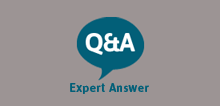Drug addiction treatments
If you’re struggling, there are tonnes of services that offer drug addiction treatment. But sometimes choice is the last thing you need, so we’re here to break it down for you. What do treatment services actually do and which one is right for you? Read on to find out.

Services for drug addiction treatments
You can find drug addiction treatments through the NHS, charities or private organisations. For example, the NHS choices website lets you search for your nearest NHS drug clinic and FRANK’s lets you search for other drug services.
There are different teams working with young people under 18 and those over 18. Adult drug addiction treatments are mainly accessed by Class A drug users (heroin and cocaine) and referrals as a result of a court or an order, such as a DRR (Drug Rehabilitation Requirement).
“When it comes to getting help with drug problems, one size doesn’t fit all and there are a range of options available,” says Andy McNichol from former drugs information charity DrugsScope (now archived by DrugWise). “Many services offer information, counselling and advice through a helpline or by appointment, and there are different types of drug treatment and support services available, including various self-help support groups run by organisations such as Narcotics Anonymous.
Drug services for under-18s
Young people’s services are designed to be a non-judgemental, welcoming environment. They deal with long-term prevention as well as reducing the effects of drug use and addiction. Services are free of charge and easy to access. Most of them will operate out of a community-run area, often in places such as sexual health clinics, One-Stop Shops, or as part of a Youth Offending Team.
Dolores Crawford works for Addaction, a drugs and alcohol treatment charity. She explains how services for under-18s work:
She reassures us that, “each young person’s service will have what is called a targeted worker and a specialist worker”. “The role of the targeted worker is to provide early intervention and prevention, so it’s quite an educational role. They aim to assess the extent of your use, and identify any problematic issues. Eventually, you’ll be linked in with other young people’s services in your local area.”
“The role of the specialist worker is to provide one-to-one non-medical intervention,” Dolores continues. “They will work with the young person to explore their use, and use tools such as The Cycle of Change, Cognitive Behaviour Therapy and Motivational Interviewing counselling, to name but a few.”
What do drug workers need to know?
Treatment for drug addiction can only work with the cooperation of the person seeking it. One of the key ways you can help is by being completely honest when answering their questions. Drug treatment agencies can only be effective if you want to put in the effort and change.
“The service you access will carry out an assessment,” says Dolores. “The sort of questions that will be asked are about what drugs you use, how much, for how long. They’ll also ask whether you or anyone else see your use as a problem.
“As well as drug use, they’ll also look at other areas, such as overall health, family background and education. This assessment can sometimes take more than one session to complete.”
What kinds of drug treatment could you receive?
Specific treatment approaches depend on what drugs you are having problems with, and what symptoms you have. Some users might just want to explore their use and cut down.
Someone with a physical dependence on, for example, heroin may need prescription drugs to help manage withdrawal symptoms. On the other hand, stimulant users may access alternative therapies, such as Electro Stimulation Therapy. “Each individual will have a care plan which will have clearly identified goals and timescales,” says Dolores.
What actually happens on a drug treatment programme?
“You will be allocated a key worker and have a care plan,” Dolores explains. “Often you are given a drug diary to begin to understand the reasons behind your use.”
You can get advice, information and support around relapse prevention, harm reduction, and overdose. But ultimately, no two treatment journeys are the same. You can help shape your specific treatment plan with the help of your support team.
How long will drug addiction treatment take?
“A drug service’s aim is to get the person to a place where they are drug-free or using in a safer and reduced way,” says Dolores. “It will take as long as the person needs it to take. Some people might have to access services a few times.”
Thanks to Addaction and former charity DrugScope for their help producing this article.
Next Steps
- Addaction helps people recover from drug and alcohol addictions.
- FRANK offers friendly, confidential advice on all things drugs-related. Call now on 0300 123 6600
- Chat about this subject on our Discussion Boards.
By Nishika Melwani
Updated on 03-Aug-2021
No featured article












